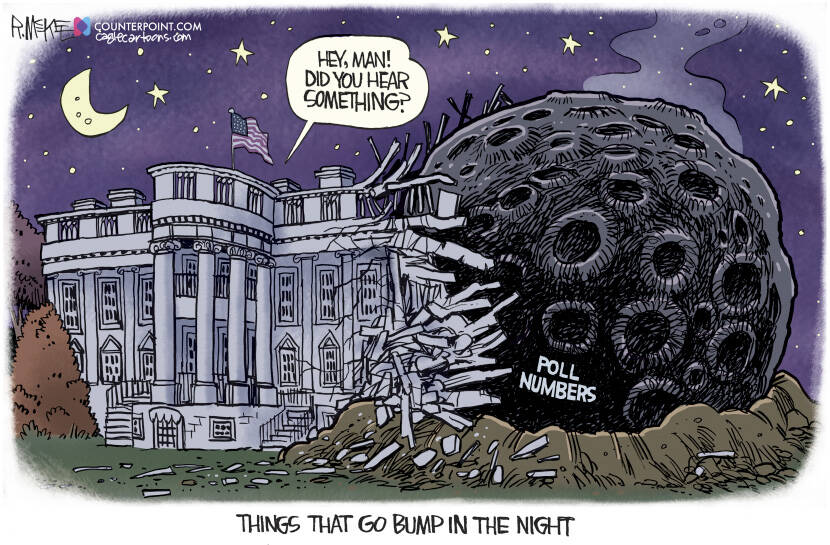One of the things most people who write about politics won’t tell you is that how a new program gets paid for is considerably less important than how much is spent. Yet, in a nutshell, that’s what’s keeping President Biden’s “Build Back Better” program from being enacted.
This is not difficult to understand. The budget process is up to its eyeballs in rules that must always appear to be followed. Whether they are, given the number of fig leaves available to obscure what’s going on, is of little consequence.
One “pay for” the White House keeps coming back to (because all new spending in the Biden Administration will be “paid for” with higher taxes and fees and such) is government price controls on pharmaceuticals, especially those relied on by the elderly. People forget that George W. Bush largely solved the problem of seniors and expensive drugs by expanding Medicare through a new entitlement.
Some nevertheless kept agitating for prices to come down further, which helped produce Obamacare, another supposed solution to the problem. It wasn’t, but the big government socialists whose real objective is a British-style National Health Service are using its failures as an excuse to rid the system of the safeguards keeping drug prices at a level reasonable for consumers, providers and manufacturers.
What the Democrats have asked for in the past — and may again want in the coming days as yet another new “Build Back Better” framework moves through Congress — is to fix the price of drugs sold through Medicare.
One plan that was recently floated used tax penalties on drug companies to raise an estimated $581 billion over 10 years, according to the Congressional Budget Office. Now the White House is talking about repealing the Trump Administration rebate rule which, it says, will raise $145 billion. Other proposals, similar in nature, are sure to come because what this is all about isn’t cheaper pharmaceuticals but the control of the U.S. healthcare system.
Another bill, the “Lowering Prices Through Fair Drug Price Negotiation Act,” would have been a money loser between 2021 and 2023, CBO said, then would raise revenues money between 2027 and 2030. Paying massive for new spending today on the promise of higher revenues seven to 10 years down the line is the kind of Washington gimmick that helped get the nation into its current fiscal mess.
The CBO also found the proposed tax penalties in the original bill would encourage drug companies to pull drugs from U.S. markets as an avoidance measure. An excise tax on zero sales raises zero revenue. Markets are dynamic even if the analysis isn’t. It’s a plan envisioned only by the kind of person who wanted to fail just to propose a fix leading to the nationalization of an entire industry.
Let’s face it: Most Americans aren’t Bernie Sanders or AOC and don’t have a passion for economic redistribution coursing through their veins. They want government mostly out of the way so the private sector can create jobs. All the government has given us since Biden came into office is inflation. It shouldn’t be allowed to kill the goose that lays the golden eggs. The United States leads the world in drug innovations. Price fixing in the private sector is illegal, and for good reason, which should send a signal about government-imposed price controls.
David Ricks, board chairman of PhRMA, warned of the dangers of price controls in the Boston Globe several weeks ago: “(T)hese price controls would shrink the sector by 40 percent or $100 billion per year in revenue. Our entire industry invests about $100 billion per year in research and development.”
You can call out his conflict of interest here but having one doesn’t make him wrong.
The American health care system has been turned on its head, with the sick subsidizing care for the healthy. Price controls on drugs paid for through Medicare won’t solve the problems still plaguing our health care system. It’s a terrible policy and an insufficient “pay for.” It belongs on the trash heap with the wealth tax and other bad ideas.
Peter Roff is a former UPI and U.S. News & World Report columnist who is now affiliated with several Washington-D.C.-based public policy organizations. Contact Roff at RoffColumns@gmail.com.



